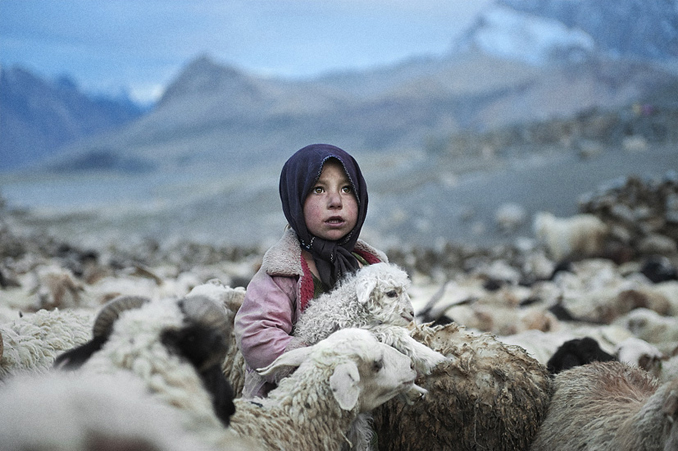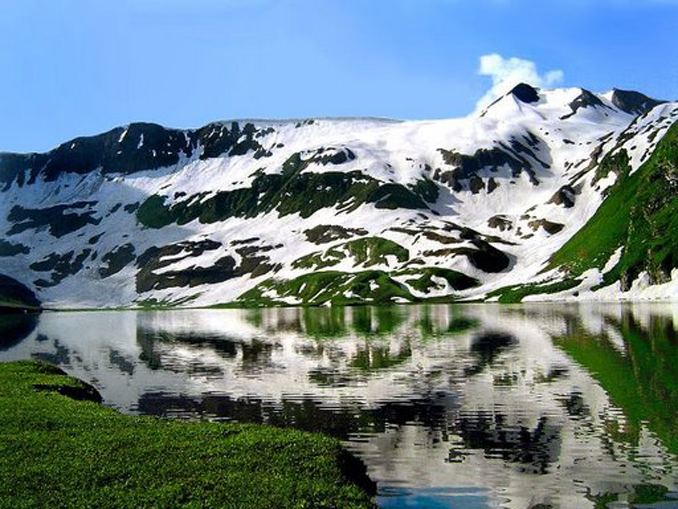
Written by: Eeman Amjad
Posted on: April 02, 2013 |  | 中文
| 中文
Shimshal Lake
The Himalayas, the frozen peaks, the glaciers, and the wide grasslands. All little features of a small village of about 2000 Wakhi speaking people, located in the Hunza Valley. A village that was as isolated as an island in the middle of the sea with no means to travel to the continent. It was only in 2003 that a link road was built connecting Shimshal to the rest of the valley and world.
There are many stories associated with the village of Shimshal, most of these stories passed down from generation to generation. One of these is the story of the founding of the village by Mamusing and his wife. It is believed that Pamir was secured by their son Sher, who won a polo contest riding a yak against Kyrgyz herders and was able to claim rights over Pamir. Every year the people of Shimshal celebrate a festival reliving history by yak racing, echoing the win of Sher. However, Shimshal is not mainly known for its stories or traditions, but is famous for being the mother that gives birth to one of the greatest climbers in the country such as Rajab Shah and Mehrban Shah. What Shimshal is known for is being the “valley of mountaineers.”
 |
Mountaineering in Shimshal is not a sport or hobby, it is a way of life. A natural bond exists between the people of Shimshal and mountain climbing. This bond was institutionalized in 2008, when the Shimshal Mountaineering School was founded. It is a unique enterprise in the country, because one of the school’s main goals was to help encourage women of the region to climb the mountains that they so often gazed upon, but for generations were excluded from climbing. The school home to many talented climbers, but is limited by its finances.
Why is this village so fertile with mountain climbers? Is this a skill innate in the people of the area? Or is it because the people of Shimshal lead a hard life with no electricity, gas or heating, living conditions that give them strength and resilience, the two attributes crucial to mountain climbing? Or is it their unique relationship to their environment. The people of Shimshal believe that the self is deeply entwined into the consciousness of nature. Shimshalis are not educated on environmental sustainability, yet it is part of their life. Nature is revered and honoured, animals are considered equals, mountains as companions and the beauty of nature is the reflection of the beauty in their life. Generations of people have gone by, living side by side with nature, always acknowledging its power and authority.
 |
Most of us, in the cities, live our lives without stopping, without thinking and without any reflection on our lives and its connection with the environment around us, as if we are two separate entities. This embracing of nature by the people of Shimshal perhaps creates an understanding with the mountains that they climb. Maybe that is what makes the people of Shimshal braver than the rest of us. The mountain is their friend and not some unconquered land that they seek to triumph over. Maybe the mountain is a separated part of their self and by climbing they are in the process of becoming whole.
You may also like: